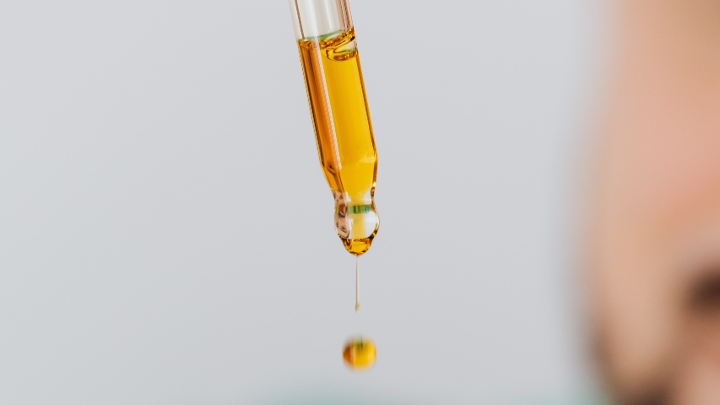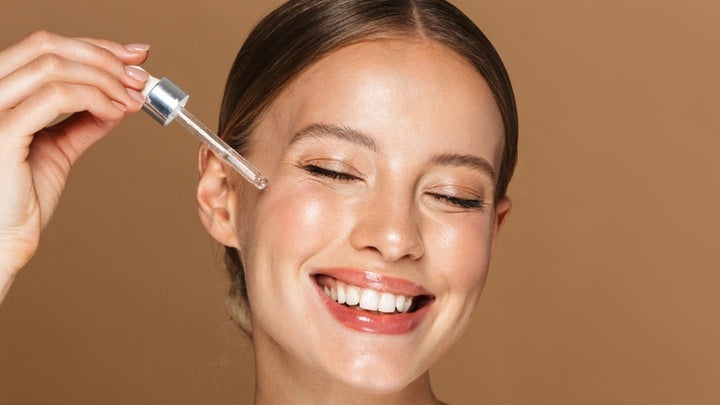Facial oil may not be on your radar because of earlier skincare campaigns that labeled oils as enemies to radiant skin.
However, you must have noticed facial oils are part of the trends in the skincare world. So, if you are wondering if you should use a face oil, this is for you.
You should use face oil in your skincare routine—to moisturize, repair, and revitalize your skin cells.
Facial oil is totally worth the hype it is getting from skincare enthusiasts. Therefore, it deserves a chance to be part of your routine.
The use of facial oil is beneficial in different ways. Read ahead to find out the benefits and how to choose the right one for your skin type.
What are the benefits of using facial oil?
The body produces sebum through the sebaceous glands to help moisturize and keep the skin from getting dry. Therefore, the skin needs oil to keep itself healthy.
The skin is prone to breakouts and premature aging signs when it becomes too dry. Using facial oil will help keep the skin plump and healthy by preventing breakouts and the formation of aging signs on the skin.
The oil will also help moisturize the skin while preventing it from environmental damage.
Adding facial oil to a dry skin’s skincare routine will help to boost moisturization and enhance other skincare products.
Below are other benefits of using facial oil:
1. Reduction of aging signs
Excessive exposure of the skin to the sun without protection can set the skin up for environmental damage like aging signs and spots.
Using a facial oil with antioxidant properties can help to prevent the skin from premature aging.
2. Help to moisturize dry skin
High temperatures and heat tend to suck up moisture from the skin. Using facial oil will help to tackle the dryness and flakiness of the skin.
Using a facial oil that contains the right ingredients may offer double the moisture you can get from OTC creams and lotion.
3. Protects the skin
Facial oils can penetrate deep into the skin layers to lock water and moisture while keeping toxins away.
Using oil on your facial skin will help to strengthen your skin’s natural barrier to help you keep the skin safe from pollutants.
4. Makes the perfect primer for makeup
Using oils on your face will also help prepare your skin for the application of skincare products.
It will help to hydrate your skin and give it the plum effect. This will help to create a smooth surface for your makeup to look better.
5. Shrink enlarged pores
Oils contain antioxidants and vitamins like vitamins A, C, and E. These ingredients not only help remove and prevent grime from the pores, but they also help to tighten the skin and shrink the pores.
However, choose your facial oil wisely by avoiding ingredients that can clog the pores.
6. Soothe rashes
Most facial oils contain anti-inflammatory properties that can help to relieve irritated skin. Applying such oils to the skin will help to reduce redness, swelling, and even discomfort from rosacea.
Should you use face oil and moisturizer?
Yes, you should.
You should use both moisturizer and facial oil in your skincare routine. Don’t abandon your moisturizer when you start using oil in your routine.
Moisturizer helps to hydrate the skin layer while the oils keep moisture in the skin.
For better application, you can add a few drops of your oil into your moisturizer to enhance the moisturization process.
Should you use face oil before or after moisturizer?
You should use your facial oil after applying your moisturizer to your face.
For your morning skincare routine, start by cleansing your face and move to apply your toner. After toning your face, apply your eye cream and then apply your facial serum.
After applying serum, use your moisturizer to keep your skin plump and hydrated. Then apply your facial oil for additional nourishment and to seal moisture in your skin.
Why should face oil come after moisturizer?
Face oils contain occlusive ingredients that form a protective layer on the skin, which prevents it from losing its natural moisture.
Applying a moisturizer after using face oil will be a waste, as it will not be able to penetrate the skin to deliver its moisturizing properties.
This is because the oil has already created a seal on the skin. Since water can’t penetrate through oil, the moisturizer won’t be able to absorb into the skin. On the other hand, oils can absorb into the skin after moisturizer—to keep moisture in the skin.
Therefore, only use your facial oil after moisturizing your skin. Otherwise, the products won’t work together and will have less effect on the skin.
When should you use face oil?
Your skin type should determine when you should use your face oil.
The skin is known to produce natural oils at different rates during the whole day. Since dry skin does not produce enough sebum, you can use a few drops of oil in the morning and evening to nourish your skin.
Other skin types can use their facial oil in the morning and at night because it gets absorbed into the skin quickly and can effectively improve skin conditions.
However, to truly achieve the glowing skin you desire, you may want to avoid using oils that don’t work for your skin type. You can also use your facial oil right before makeup to help you achieve a good finish look.
Which face oil should you use for your skin?
The face oil you should use in your routine depends on your skin type and concern.
For sensitive skin, look for oils that contain primrose, argan, or vitamin E oils. These are oils that help to protect the skin from the sun and other environmental damage.
They also contain anti-inflammatory properties that can help soothe the skin and reduce redness.
For oily and acne-prone skin types, look for oils like jojoba oil, rosehip oil, camellia flower oil, and tea tree oil. These oils will help regulate oil production in your skin and also reduce the size of your pores.
For dehydrated skin, look for coconut, argan, jojoba, olive, and sunflower oil. These oils will help to prevent dryness by helping your skin from losing its natural moisture.
For aging skin, look for oils like rosehip oil, argan oil, and other facial oils that contain vitamins C and E. These are antioxidants that can boost collagen production in the skin to keep it smooth and firm.
Frequently Asked Questions

Can you use face oil on your body?
Yes, you can.
You can use face oil on other parts of your body asides from the face. Both facial and body oils can be used on any part of the body, as they contain moisturizing properties And are non-comedogenic.
Should you use vitamin E oil on your face?
Yes, you should.
The body needs vitamin E to help support the immune system and the regeneration of skin cells. Therefore, you should use vitamin E oil in your routine.
You can use the oil on your skin in the morning as a layer of protection against environmental damage. Then use it at night as an overnight antiaging treatment for your face.
Should you use jojoba oil on your face?
Yes, you should.
You should use jojoba oil for your skin if you have skin conditions like acne, eczema, psoriasis, and others.
Jojoba oil contains anti-inflammatory and moisturizing properties that can help soothe irritation on the skin.
Conclusion
Facial oil is one skincare product you should consider introducing to your skincare routine. It is a beneficial product that works for all skin types, as long as you get one suitable for your skin type and concern.
Introduce the oil to your beauty routine today to start enjoying the many benefits facial oils have on the skin.
Thanks for reading.
You can find more helpful beauty tips here on MBGON.
